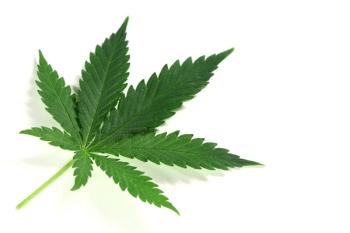
Cannabis Science and Technology
- Psychedelics: New Frontiers in Alternative Medicine
- Volume 5
- Issue s1
- Pages: 12-14, 18
A New Clinical Trial in South Africa Aims to Study the Effect of Psilocybin on HIV Positive Women with Major Depressive Disorder
In this interview, Donaghue Woodman, Head of Research and Development and Chief Medical Information Officer at Cannsun, provides an in-depth look at their current clinical trial on the effects of psilocybin in treating a prevalent yet unresolved issue in South Africa.
With an increased interest in the medical uses of psychedelics, new studies are emerging to explore their potential to treat mental health illnesses. One company, Cannsun Medicinal Global, is looking to address physical and mental health diseases affecting a large population in South Africa by studying the effects of psilocybin with psychotherapy on HIV positive women who have major depressive disorder (MDD). Cannsun is a biopharmaceutical company that develops and commercializes new medicines, with a focus on research and development in both women’s health and mental health. In this interview, Donaghue Woodman, Head of Research and Development and Chief Medical Information Officer at Cannsun, provides an in-depth look at their current clinical trial on the effects of psilocybin in treating a prevalent yet unresolved issue in South Africa (1).
Can you tell us more about your work at Cannsun Group PLC?
Donaghue Woodman: As Head of Research and Development, I’m responsible for investigating and initiating novel active pharmaceutical ingredients (APIs), research, and trials, respectively, that will make a positive lasting change on diseases that impact populations, especially women, within developing countries. I assist in navigation of the regulatory environment to ensure that we not only remain compliant, but also contribute to new laws and regulations around cannabis and psychedelic therapies in southern Africa.
As Chief Medical Information Officer of CannhealthMD, Cannsun’s Clinical Education arm, I am responsible for data analysis on current medical needs and market gaps relating to medical cannabis and psychedelics; the creation of educational content and forums; training of medical doctors, nurses, and pharmacist on medical cannabis and psychedelics in South Africa; and lastly forming valuable partnerships and collaborations for vertical integration of our operations in sub-Saharan Africa.
What prompted Cannsun to conduct a study on the effects of psilocybin on major depressive disorder (MDD)?
Woodman: Major depressive disorder (MDD) impacts more than 300 million people globally and has led to rising healthcare expenditures in both private and public sectors. Mental health conditions such as depression and anxiety cost the South African economy more than $12.5 billion because of mental ill health. Patients suffering from MDD are at higher risk of mortality than those who aren’t; in sub-Saharan Africa, where an estimated 8.2 million people are living with HIV, MDD is one of the more prevalent co-morbidities in human immunodeficiency virus (HIV) and in women. Data presented by the South African College of Applied Psychology in 2018 (2) suggest that one in six South Africans suffers from anxiety, depression, or a substance use disorder. According to the data, 40% of South Africans living with HIV have a comorbid mental disorder, 41% of pregnant women are depressed, and about 60% of South Africans could be suffering from post-traumatic stress. Due to the high rate of relapse, which could be as much as 40-60%, new therapies and treatment modalities are urgently needed.
Can you share more details about the clinical trial? What are you hoping to learn?
Woodman: The trial is a double-blind, randomized, phase 2 feasibility study of psilocybin-assisted brief supportive psychotherapy in an HIV positive all female group with major depressive disorder. The trial will comprise of 30 participants and each participant will be inducted into the trial for three months in total. The trial will be conducted at TASK facilities in Cape Town, South Africa.
The aim of the study is not only to assess safety and efficacy of psilocybin in HIV positive individuals, but to also assess the entourage effect of estrogen and psilocybin in treatment of MDD in women.
Why is it important that the participants in this study are both women and HIV positive?
Woodman: Women are twice as likely to contract HIV than men in sub-Saharan Africa. In these regions, women between the ages of 15–19 years account for 6 in 7 new HIV infections, contributing to 63% of all new infections. In 2020, an estimated 4200 women between the ages of 15–24 years became infected weekly. Serious mental illness is associated with harder-to-treat progression of HIV disease. Depression has been associated with lack of medication adherence among HIV positive infected individuals. Treatment with antidepressant medication has shown to assist in improving antiretroviral adherence among those suffering from mental health issues. Comorbid psychiatric diseases linked to HIV, such as major depressive disorder and substance abuse, have been shown to be predictive precursors of suicidal ideation in HIV positive individuals. A recent study conducted in HIV positive individuals discovered that persons with a history of suicidal ideation reported significantly higher degrees of current depressive symptoms and had a greater prevalence of not only major depressive disorder but showed higher levels of plasma HIV RNA (3).
Women have previously been under-represented in clinical trials related to mental health, and in trials where women were included, the published results were not always gender specific. In addition, post puberty, women have a 2:1 increased prevalence of major depression compared to men. Current treatment for depression is suboptimal or ineffective in approximately 50% of patients.
It is vitally important to have a deeper understanding of how women respond to medical treatment for major depression versus men in order to develop psychedelic therapies and treatment protocols for women that have clinically significant outcomes that are safe and effective.
Can you tell us about the partnerships you have formed for conducting this study, such as with TASK and with Professor Soraya Seedat?
Woodman: Established in 2005, TASK is a renowned research specialist organization in infectious diseases, most notably in tuberculosis (TB), COVID-19 treatment, and vaccines. TASK’s founder, Professor Andreas Diacon, has been celebrated by the Bill and Melinda Gates Foundation as a “hero in the field” for his contribution to TB drug development.
The TASK clinical research organization (CRO) will work in conjunction with Soraya Seedat, a distinguished Professor of Psychiatry and Executive Head of the Department of Psychiatry at Stellenbosch University in South Africa. She has more than 20 years of clinical, epidemiological, and basic neuroscience research experience as a psychiatrist. She has also been the recipient of several awards including the World Federation of the Society of Biological Psychiatry Fellowship, the Anxiety Disorders Association of America Career Development Award, the Humboldt Research Award, and many others.
When do you hope to have results published?
Woodman: Each patient will be enlisted into the trial for at least three months, and due to the high rate of HIV in South Africa and emphasis being placed on mental health and major depressive disorder, we foresee trial completion in about eight months from our start date in July. The results of the trial will most likely be published by April or May 2023 by Professor Seedat from USB post completion.
What have other studies suggested so far about the effect of psilocybin on treating mental health conditions?
Woodman: A recent study published by Roland Griffiths and colleagues (2022) examining the safety and efficacy of psilocybin over a 12 month period in a patient group suffering from moderate to severe MDD showed that the substantial antidepressant effects of psilocybin-assisted therapy may last 12 months following acute intervention in certain patients (4). This data serves as a valuable tool for future research and development and government planning of mental healthcare policies and healthcare expenditure in combating major depression in countries like South Africa.
What sorts of research has Cannsun conducted with cannabis? Have you conducted any studies on the use of cannabis as a treatment in conjunction with psilocybin?
Woodman: Cannsun Group PLC, founded by David Parry and managed by our Canadian-based COO Aaron Katerenchuk, is a bio-pharmaceutical company focused on developing and commercializing new medicines to optimize human potential with operations in South Africa and Thailand. Cannsun Medicinal Global has a strong focus on research and development in both women’s health and mental health. We are in the process of finalizing a clinical trial proposal for submission to the regulatory authority for research in schizophrenia (phase 1 trial). No combination therapy trial using both cannabis and psilocybin as a treatment modality has been done in South Africa to date due to the sensitive nature of these molecules in South Africa and their regulatory status. Although Cannsun has been awarded the first psilocybin trial and is cultivating medicinal cannabis in Atlantis, South Africa both of these modalities are still classed under a Schedule 7 substance in terms of the Medicines and Related Substances Act 101 of 1965.
Where do you hope to see more research in the future?
Woodman: I wish to see more research done on and documented scientific data presented on whole psilocybin mushroom extract used to treat mental health disorders versus single molecule API. I wish to see more integrative holistic research done on schizophrenia to reframe and redefine the so-called disease in context of western versus traditional views and how schizophrenia relates to psychedelics. I wish to see the documented use and efficacy of ayuasca in schizophrenia. Lastly, I would like to see additional research and publication of more scientific data of African psychedelic iboga in treatment of substance abuse disorders.
Is there anything else you’d like to add?
Woodman: For psychedelic therapy to be a success and “re-integrate” its way into medicine and society, more focus needs to be given to finding cost efficient ways of manufacturing psychedelic therapies to provide equal affordable access to all. Psychedelic use among African people, including for mental health, needs to be destigmatized globally through awareness and education. More emphasis needs to be placed on set and setting, and on setting up global training centers for specialists who wish to administer psychedelic therapies. Pharmaceutical organizations will need to collaborate closely with government institutions, regulatory authorities, research organizations, leading experts, and universities to ensure that the education, incorporation, ethical use, and accessibility of psychedelic medicines into a country will benefit its people in both private and public setting and that the necessary infrastructures are in place to support both patients and healthcare providers alike.
References
(2)
Articles in this issue
over 3 years ago
May/June 2022 Digital Editionover 3 years ago
The Path to Legalized, Accessible Psilocybin Therapyover 3 years ago
Anticipating Legalization: Making Psilocybin Accessibleover 3 years ago
Psilocybin Therapy for PTSD and DepressionNewsletter
Unlock the latest breakthroughs in cannabis science—subscribe now to get expert insights, research, and industry updates delivered to your inbox.




